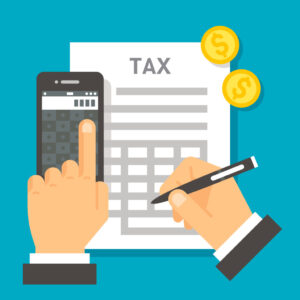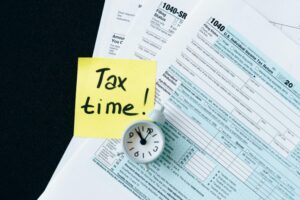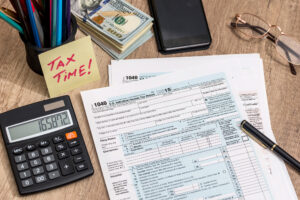Moving to Switzerland offers stunning landscapes, high quality of life, and excellent career opportunities. However, navigating the country’s unique, multi-layered tax system—with its federal, cantonal, and municipal taxes—can be daunting, especially when combined with the complex filing requirements of your home country, such as the citizenship-based taxation for US expats. Choosing a reliable tax service is not a luxury; it’s a necessity for ensuring compliance, maximizing legitimate deductions, and securing your financial peace of mind in 2025 and beyond.
The Swiss tax landscape is complicated by the significant variation in tax rates and rules across the 26 cantons (e.g., a person in Zug pays considerably less tax than someone in Geneva on the same income). For many foreigners, the mandatory ‘Quellensteuer’ (withholding tax) to start with simplifies matters, but crossing the CHF 120,000 profits threshold or acquiring a Permit C triggers the requirement to file a complete tax return, including any other layer of complexity. Furthermore, tax considerations extend beyond mere income to include wealth tax on net assets, the tax-advantaged Pillar 3a pension savings, and tax services for expats specific rules for real estate and investment income.
To protect your assets and maintain compliance in this intricate system, follow this comprehensive guide to evaluating and selecting the right tax professional.

Key Factors for Evaluating Expat Tax Services
The exceptional tax consultant for an expat in Switzerland must be a expert, not a generalist. Their carrier should be constructed on a basis of expertise, transparency, and safety.
Professional Credentials and Experience
The cornerstone of a reliable service is the qualification and specialization of the professional. Swiss tax law is distinct, and international tax law adds another critical dimension.
- Swiss Certification: Look for advisors who hold the Swiss Certified Tax Expert (or Experte/Expertin in Rechnungslegung und Controlling mit eidg. Diplom for accounting expertise). This is a highly regarded, federally recognized qualification signifying deep knowledge of Swiss taxation across federal, cantonal, and municipal levels.
- Dual Expertise (Crucial for US Expats): If you’re a US citizen or Green Card holder, your tax manual need to be talented in every Swiss and US tax law. This twin qualification is non-negotiable for navigating the Foreign Earned Income Exclusion (FEIE), the Foreign Tax Credit (FTC), FBAR (Foreign Bank Account Report), and potential US-Swiss tax treaty interactions. A common qualification here is a Certified Public Accountant (CPA) with specific experience in expatriate tax, often referred to as an Expat CPA or US Tax Advisor for Expats.
- Relevant Experience: The firm or advisor should have a proven track record specifically with expats in Switzerland. Ask how many Swiss expat returns they filed last year and if they have experience with your specific canton, as local variations are key to proper optimization (e.g., Zurich vs. Schwyz vs. Vaud). Experience with specific issues like lump-sum taxation or the taxation of Pillar 2/3a pension withdrawals is a major plus.
Transparent and Fair Pricing
Tax advisory costs can vary significantly, ranging from around CHF 350 for a simple return to well over CHF 2,000 for complex dual filings involving multiple income sources or foreign assets. Understanding the fee structure upfront prevents unexpected bills.
- Fixed Fee vs. Hourly Rate: Many reliable firms offer fixed-fee packages for standard expat returns (e.g., a tiered structure based on complexity, like number of investment accounts or international allocations). This provides cost certainty. An hourly rate (often around CHF 300 to CHF 400+) is typically reserved for complex consultations, tax planning, or audit support.
- Clarity on Complexity Surcharges: Be wary of packages that seem too cheap. Ensure you understand all potential surcharges for common expat complexities, such as:
- Filing the additional US return (if applicable).
- Inter-cantonal or international tax allocations (e.g., owning property abroad).
- The number of foreign bank/investment accounts you hold.
- Handling complex forms like the DA-1 for refunding Swiss withholding tax on foreign dividends.
- No Obligation Consultation: A trustworthy firm will offer a brief, free consultation or a personalized quote process that outlines the exact price before you commit to the service.
Strong Data Security and Digital Platform

Handling your taxes requires sharing highly sensitive personal and financial data. In an more and more virtual global, strong statistics protection is paramount, mainly underneath the ultra-modern Swiss Federal Act on Data Protection (FADP) and international necessities like GDPR.
- Secure Client Portals: The service should use a secure, encrypted, client-only portal for document exchange, rather than relying on standard email. This portal should offer an audit trail and multi-factor authentication.
- Data Residency: Ask wherein your information is stored. For Swiss tax compliance, storing the statistics on servers within Switzerland or the EU is regularly preferred and demonstrates a dedication to stringent neighborhood information protection legal guidelines.
- Compliance with FADP: The company ought to explicitly country its compliance with the FADP and describe its internal records safety protocols. They ought to be capable of truely articulate how they prevent information loss, unauthorized access, and misuse.
Independent Verification and Reviews
A professional website is a starting point, but independent verification provides real assurance.
- Independent Review Platforms: Look for reviews on third-party, verified platforms like Trustpilot, Google Reviews, or expat forums. Pay attention to comments regarding responsiveness, the advisor’s knowledge on specific expat issues, and the accuracy of the filings. A consistent pattern of positive, detailed reviews is a strong indicator of reliability.
- Professional Association Membership: Membership in a recognized body like EXPERTsuisse (the Swiss Expert Association for Audit, Tax In Switzerland For Foreigners, Tax and Fiduciary) suggests adherence to high ethical and professional standards. For US tax services, look for accreditation from the IRS as an authorized e-file provider.
Conclusion: Securing Your Financial Future in the Alps

Choosing the proper expat tax service in Switzerland for 2025 is a important monetary choice. The complexity of managing two wonderful tax systems—one based on global income (for Swiss citizens) and potentially another primarily based on citizenship (for US expats)—demands a consultant. Prioritize a firm with dual qualifications (Swiss and overseas expat information), a obvious price shape constructed around constant-fee programs, and uncompromising statistics protection. By asking the proper questions and verifying their credentials and unbiased evaluations, you could with a bit of luck associate with a dependable tax carrier that guarantees compliance, optimizes your monetary position, and allows you to revel in the unparalleled satisfactory of existence in Switzerland with out the pressure of tax season looming.

